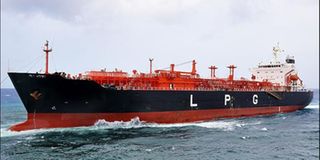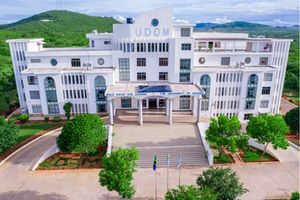How to ramp up LPG business in Tanzania

What you need to know:
- Those who spoke to The Citizen said Tanzania should intensify promotion of the use of LPG, increase Dar es Salaam Port’s handling capacity, improve storage capacity and speed up clearance of imported consignments
Dar es Salaam. Players in the liquefied petroleum gas (LPG) business have listed issues that need to be addressed for Tanzania to remain competitive in the LPG sub-sector in East Africa.
Those who spoke to The Citizen said Tanzania should intensify the promotion of the use of LPG, increase Dar es Salaam Port’s handling capacity, improve storage capacity and further speed up clearance at the port.
The views come at a time when neighbouring Kenya has outlined plans to dominate the LPG market in the region, including construction of the biggest import and storage facility in Mombasa, and licensing more private companies.
Players in Tanzania said the developments in Kenya should serve as a wake-up call for the government and private sector to set the stage for smooth operations that will make local actors more competitive.
However, the Energy and Water Utilities Regulatory Authority (Ewura) director general, Mr Modestus Lumato, said the new development in Kenya would have little effect on the Tanzanian market.
“The share of our LPG imports that goes to Kenya is not that big. It is only 10 percent,” he said.
He added that between 30 and 40 percent of LPG imported into the country is exported to neighbouring countries, mainly Kenya, Rwanda, Burundi and Malawi.
Mr Lumato said the potential loss of the Kenyan market could be compensated by promoting the use of LPG in rural areas.
“LPG demand has been increasing day after day. With our promotion campaigns, we believe we have what it takes to thrive within the country, and in the East African region,” he said.
During the year ending June 30, 2021, some 217,149 tonnes of LPG were imported into the country compared to 189,509 tonnes imported the previous year.
This reflects an increase of 14 percent, indicating that demand for LPG in the country is still healthy.
Oryx Gas Tanzania Limited commercial and supply head Mohamed Mohamed said unless measures to make local players competitive enough were taken, the export market was likely to drop by almost half.
He added that there was an urgent need to increase the number of people using LPG across the country.
Mr Mohamed said the private sector should cooperate with the government to expand storage capacity and improve port infrastructure.
Dar es Salaam Port’s capacity of handling LPG vessels was limited at 5,000 tonnes, he said, adding that infrastructure should be improved to allow bigger vessels to berth and improve freight economics.
While it took about four days for a vessel carrying 5,000 tonnes of LPG to discharge its cargo in Dar es Salaam, the time in Mombasa was less than 24 hours, according to Mr Mohamed.
“If larger vessels are able to dock in Dar es Salaam, we will enjoy better freight economics, which will translate into a decrease in premium, and lower retail prices.”
Taifa Gas Tanzania Limited managing director Hamis Ramadhan welcomed competition, saying players who would address market challenges stood to win more customers.
“Competition is a good thing. Let it take its course. What we don’t like to see are barriers to trade,” he said, noting that protectionism was an impediment to trade. “The East African market needs to be treated by all members as a common market.”
In doing so, he said, Tanzania could stand a chance of offering quality and cost-effective products.
The flow of business, Mr Ramadhan added, could be fuelled by a conducive business environment.
“Like Kenya, we also need to encourage investment in the sub-sector because in doing so, it will drive investment in other areas.”
Speaking in March, Energy minister January Makamba said the government was expanding infrastructure dedicated to the unloading of LPG at Dar es Salaam Port.
“We have identified investors who can enable us to unload vessels carrying up to 45,000 tonnes of LPG,” he said.
Earlier this year, Works and Transport minister Makame Mbarawa challenged the Tanzania Ports Authority (TPA) to address LPG handling issues at Dar es Salaam Port.
The Citizen could not immediately reach TPA director general Eric Hamissi for comment yesterday.
However, he is on record saying TPA was doing everything possible to enable the port to handle large LPG consignments.





